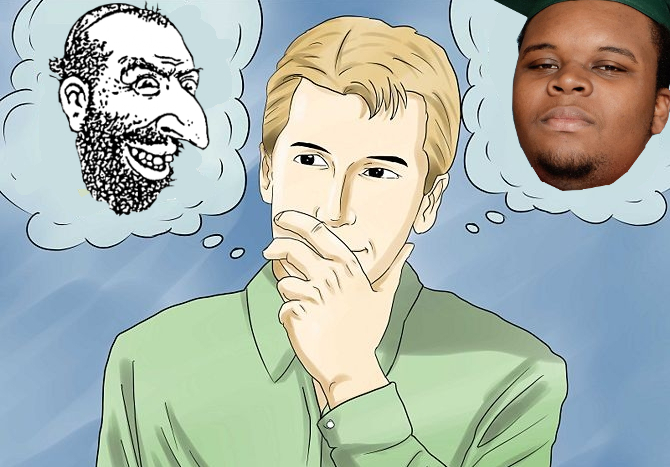Kevin MacDonald
Occidental Observer
October 19, 2015
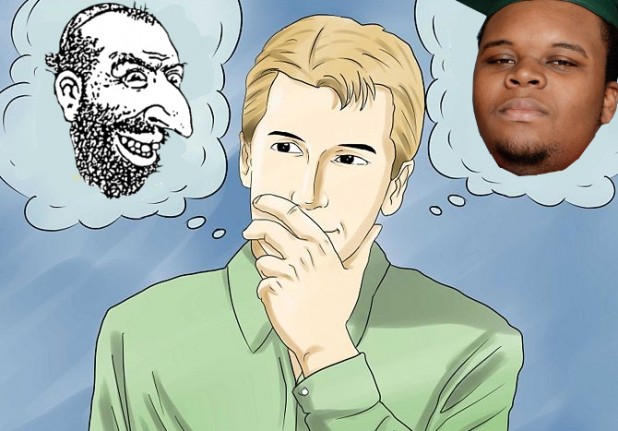
The academic world is a significant source of power in Western societies. Contemporary views on issues like race, gender, immigration, and a host of vital issues originate in the academy, are disseminated throughout the media, and ultimately are consumed by the educated and not-so-educated public. Newspaper articles and television programs on these issues routinely include quotes from academic experts — especially professors from elite institutions, and a lot of media legitimacy derives from the ability to feature op-eds written by professors at Ivy League universities.
But for all its espousal of egalitarianism, the academic world is a top-down system in which the highest levels are rigorously policed to ensure ideological conformity, in part because any leak in the system would mean that non-conformists would benefit from institutional prestige. This, of course, is exactly why John Mearsheimer and Stephen Walt, authors of The Israel Lobby and U.S. Foreign Policy, caused such a panic attack in the ranks of the Israel Lobby. Mearsheimer and Walt weren’t just two easy-to-ignore professors from a third-tier institution; nor they members of an easily marginalized group. They were well-known and academically productive professors from prestigious institutions — the University of Chicago and Harvard respectively. Hence the charges that their book was resurrecting the Protocols.
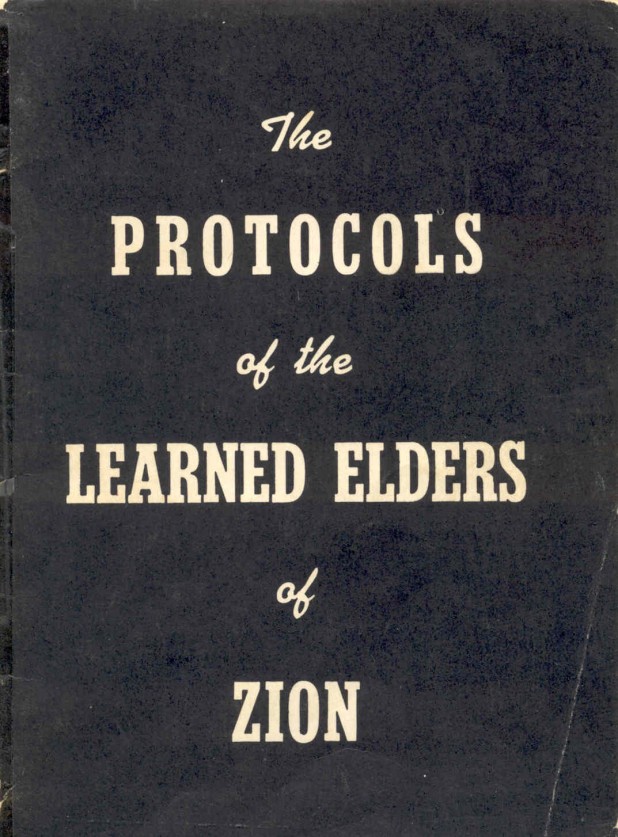
Quite a few academics like to think of themselves as rebels against a conservative establishment, which is a bit ridiculous given that every elite institution in the West is dominated by people who are entirely on board with the transformation of Western societies into racially egalitarian, harmoniously cooperating Utopias in which Whites no longer have the power to assert their interests. The same goes for the young anti-fas who busy themselves with “anti-racist” activism directed against tiny, marginalized groups while essentially upholding a system backed by the largest media corporations and pretty much all mainstream political figures.
The self-image of being rebels is particularly incongruous among academics because of the stifling conformity of the academic world. To be sure, not a few academics are entirely at home in this atmosphere. Over the last 50 years, whole departments in the social sciences have been built-up and staffed by the ascendant American non-White majority. Legions of administrators have been hired because they are non-White and/or are members of sexual minorities — the coalition of the aggrieved.
So this transformation has huge inertia. And a large part of the inertia is that there are severe penalties for those who transgress the consensus of the left. And that in turn leads to a stifling atmosphere in which any non-conformity is rare indeed.
A very slight bit of good news is that there is beginning to be a literature that emphasizes the severe conformism and liberal biases found among academics. One can hope that perhaps at least there will be more of an awareness that the image of a cowering cuckold is far more appropriate for the vast majority of academics than that of a dashing rebel against the establishment.
An example is Joanna Williams, director of the Centre for the Study of Higher Education at the University of Kent and education editor at spiked. Williams emphasizes the stifling conformity of the academic environment in her forthcoming book Academic Freedom in an Age of Conformity: Confronting the Fear of Knowledge. From The College Fix:
Academics … are afraid of controversy, attacks from students and negative peer reviews, according to Williams.
‘You don’t stick your neck out and you don’t say anything controversial’
… Because knowledge has been replaced by values such as inclusivity, diversity and sustainability in the university, academics are expected to “adhere to these values, and it creates a very stifling climate where people can’t speak out” ….
Obviously, the values of inclusivity, diversity and sustainability have nothing to do with truth. This is particularly important in departments like education where such values compromise reasonable approaches to teaching children. I have had discussions with academics who are strongly opposed to any discussion of racial, genetically influenced differences in academic ability even though they are quite aware that they exist. In the absence of such a discussion, the public conversation in the media usually reverts to charges that the reason for the racial achievement gap is because of White racism, either directly or indirectly (e.g., by causing Black poverty). And because political/ideological goals are paramount, this result is entirely acceptable to the academic zeitgeist. The point is not to improve student performance, but to had adhere to sacred values of inclusivity and diversity, with the ideology that all students have equal potential to learn.
“As academics censor each other, they create a climate of conformity where if you want to get on in an academic career, you don’t stick your neck out and you don’t say anything controversial.”
Students pick up on this and begin to follow suit. Before long, debating, challenging and wrestling with ideas and truth claims becomes obsolete, replaced by a classroom full of silent witnesses who refuse to contest the academics teaching them, Williams said.
“Then there’s no need for external restraints on academic freedom because academics are doing it for themselves – they’re restricting their own academic freedom.”
Students who don’t conform are self-selecting themselves out of university
Professors who argue that this generation of students can’t cope with free speech and controversial ideas should look in the mirror, Williams said.
“These ideas don’t just come out of nowhere,” she said. “It’s not fair for academics to create a climate that justifies this kind of censorship and then wash their hands of it when they don’t like the consequences when students actually act on the ideas that lecturers put forward.”
In other words, university courses, especially in the social sciences and humanities where ideas on race, ethnicity and gender are discussed, are taught by cowering cuckolds and the end product is a cadre of graduating students who are also cowering cuckold zombies who have been taught to suppress any thought that conflicts with what their professors told them.
The long-term consequences are that students begin to leave institutions of higher education because those who conform to the dominant set of views do well in school, and those who don’t conform don’t feel as supported in the classroom, according to Williams.
It’s actually the conformists who fit into academia, while the rest “keep quiet or leave,” she said. “The university becomes completely self-reinforcing, like an echo chamber, where this kind of conformist culture is completely self-perpetuating.”
She’s hopeful her book will shine a light on the problem but laments: “Academia just doesn’t have in it anymore people who have controversial ideas.”
The importance of self-selection has been highlighted by Profs. Neil Gross and Ethan Fosse (“Why are professors liberal?” Theory and Society, 4, 127–168, 2012). Liberal students feel comfortable with the messages they are receiving and regurgitating on exams. Conservatives have to put up with the propaganda as undergrads (and likely quite a few are converted to the left), but certainly few would be so masochistic as to choose a career in such a hostile environment. Being a conservative (or at least the sort who identifies as a White person and thinks Whites have interests) would mean you would have to be a double agent for your entire graduate career and at least until you had tenure. Then if you came out, it would mean the end of promotions and the possibility of going for the big money as an administrator. No more grants or official positions in academic societies — not to mention invitations to parties. As Gross and Fosse note, “when it occasionally happens that conservative students do form the aspiration to become professors, they are likely to run up against barriers involving both self-concept incongruence and negative judgments from peers and occupation members.”
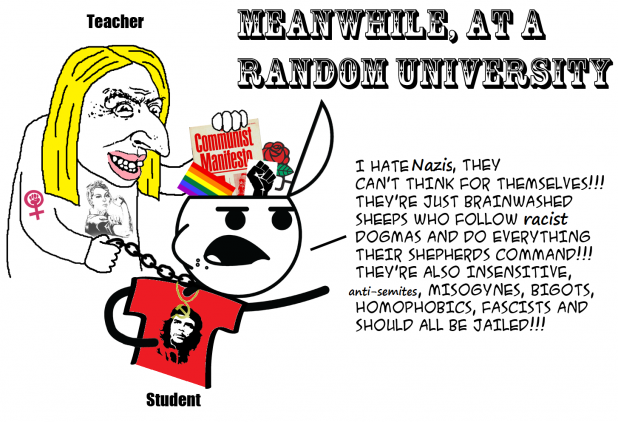
The reason one would need to dissemble is quite simple: Academics are not shy about saying that they would discriminate against people with political views they don’t like, and for the left that means pretty much anyone right of center, including establishment Republicans. In fact, liberal faculty members (and around 90% of social science faculty are self-described liberals) acknowledge being willing to discriminate against conservative job candidates, and that this tendency becomes stronger among the most liberal faculty (Yoel Inbar and Joris Lammers, “Political diversity in social and personality psychology,” Perspectives in Psychological Science, 7(5), 496–503, 2012).
Another important contribution is the work of Jonathan Haidt and colleagues which has been noted several times at TOO. I love his term “tribal moral communities” as describing the academic world because it emphasizes the importance of moral claims (read “diversity” and “inclusiveness” as emphasized by Joanna Williams) over truth, as well as the tribal (ingroup vs. outgroup) nature of the academic world. To identify as a social psychologist (Haidt’s main example) is to think of oneself as an embattled, morally superior minority, fighting the good fight against the bastions of evil in the wider society. Again, these tribal moralists should understand that their tribe is entirely in control of all the elite institutions in the U.S. It is we on the identitarian right that are the truly embattled minority with a moral message that is completely suppressed by the establishment moral ingroups (see “The Morality of Majority Rights and Interests“).
Haidt and colleagues recently published a major review paper on the topic (“Political Diversity Will Improve Social Psychological Science“). From the abstract:
One key type of viewpoint diversity is lacking in academic psychology in general and social psychology in particular: political diversity. This article reviews the available evidence and finds support for four claims: 1) Academic psychology once had considerable political diversity, but has lost nearly all of it in the last 50 years; 2) This lack of political diversity can undermine the validity of social psychological science via mechanisms such as the embedding of liberal values into research questions and methods, steering researchers away from important but politically unpalatable research topics, and producing conclusions that mischaracterize liberals and conservatives alike; 3) Increased political diversity would improve social psychological science by reducing the impact of bias mechanisms such as confirmation bias, and by empowering dissenting minorities to improve the quality of the majority’s thinking; and 4) The underrepresentation of nonliberals in social psychology is most likely due to a combination of self-selection, hostile climate, and discrimination.
Note especially, that political diversity would likely improve the science of social psychology.
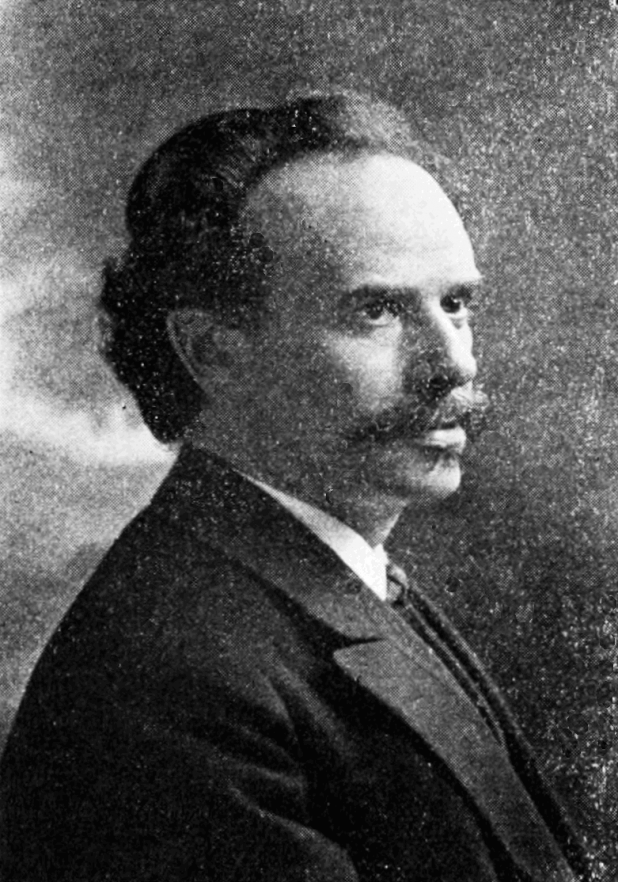
I suppose it’s good that academics may become more self-conscious of the consequences of their ideological stances. However, it’s a long road to actually making meaningful change. I suspect that a great many faculty would continue to discriminate, knowing full well that faculty attitudes impede finding out how the world works. The point of Culture of Critique is that truth has never been a concern for the classic Jewish intellectual movements or the left generally. Rather, these movements established ethnically based ingroups that presented themselves to the world as moral communities. As I noted in the chapter on Franz Boas et al., based on Gelya Frank’s American Anthopologist article (Frank, G. (1997). Jews, multiculturalism, and Boasian anthropology. American Anthropologist 99:731–745):
Jewish identifications and the pursuit of perceived Jewish interests, particularly in advocating an ideology of cultural pluralism as a model for Western societies, has been the “invisible subject” of American anthropology—invisible because the ethnic identifications and ethnic interests of its advocates have been masked by a language of science in which such identifications and interests were publicly illegitimate.
These were indeed tribal moral communities at their core, in a Jewish ethnic sense. For the principal players, the pursuit of Jewish ethnic interests was far more important than truth, and collectively they have resulted in marginalizing racial research and pathologizing expressions of ethnic interests for Whites while simultaneously promoting the ethnic interests of all other groups.
Indeed, my view is that the domination of the university by the ethnic/sexual left has ultimately been the result of the rise of Jews as an elite. Although there may be some self-deception going on regarding motives, the burden of The Culture of Critique was to show that the main figures in these movements were quite conscious that they were pursuing Jewish interests. Simply being aware of biases does not imply that the biases and ensuing discrimination will cease. Certainly there has been no visible change in anthropology even after Gelya Frank made clear the motives of the founding fathers of the field as well as the continuing commitment of the field to cultural pluralism.
Pictures and captions added by the Daily Stormer.
